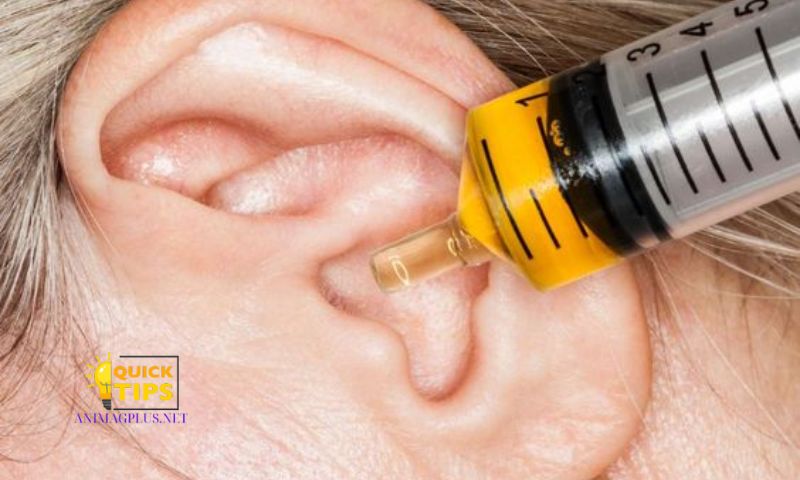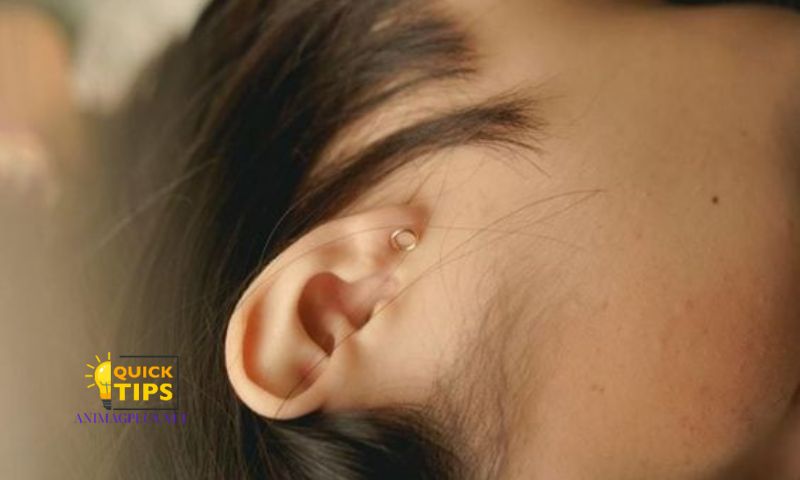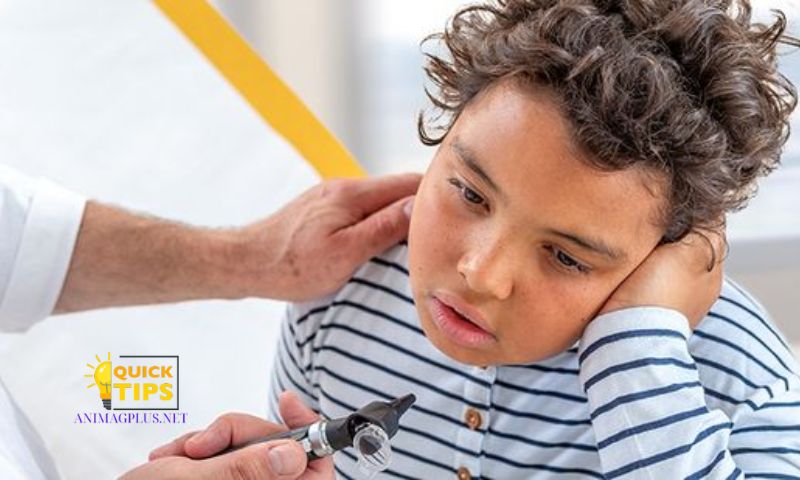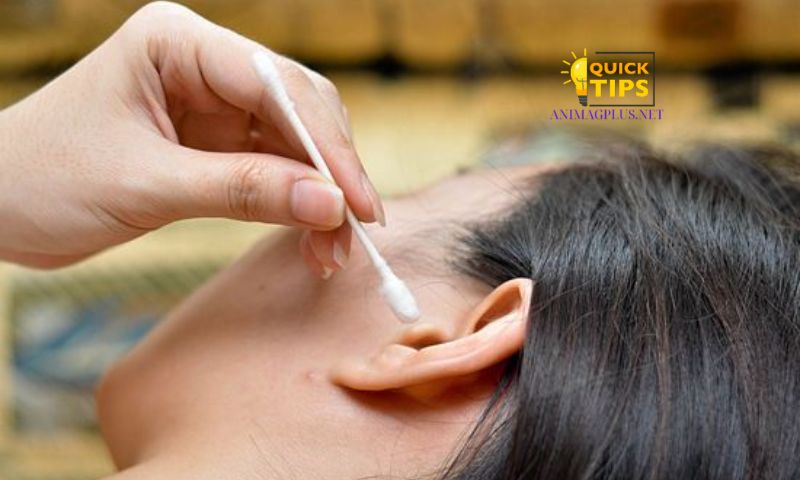Itchy ears can be a bothersome condition that affects many people. Whether it’s a mild irritation or a persistent itch, understanding the causes and finding effective remedies is crucial. In this comprehensive guide, Animagplus.net will explore various tips to relieve itchy ears, including home remedies, over-the-counter solutions, and preventive measures. By the end of this article, you’ll have a thorough understanding of how to manage and prevent itchy ears effectively.
Common Causes of Itchy Ears

Before diving into the tips to relieve itchy ears, it’s essential to understand the common causes behind this discomfort:
- Allergies: Allergic reactions to pollen, dust, pet dander, or certain foods can cause itchy ears. The body’s immune response to allergens often results in inflammation and itchiness.
- Ear Infections: Bacterial or fungal infections in the ear canal can lead to itching. Otitis externa, commonly known as swimmer’s ear, is a typical example.
- Dry Skin: The skin inside the ear canal can become dry and flaky, leading to itching. This is often exacerbated by harsh soaps or shampoos.
- Earwax Buildup: Excess earwax can block the ear canal, causing irritation and itchiness. Sometimes, the use of cotton swabs can push wax deeper into the ear, worsening the problem.
- Environmental Factors: Changes in temperature, humidity, or exposure to water can contribute to itchy ears. Frequent swimming or bathing can disrupt the natural balance of moisture in the ear canal.
When to See a Doctor
While many cases of itchy ears can be managed at home, it’s important to recognize when medical attention is necessary. Consult a healthcare provider if you experience:
- Persistent or severe itching
- Pain or swelling in the ear
- Discharge or bleeding from the ear
- Hearing loss
- Symptoms of infection such as fever
Tips to Relieve Itchy Ears

Now that we’ve covered the causes, let’s explore some effective tips to relieve itchy ears. These methods include home remedies, over-the-counter solutions, and lifestyle changes.
Home Remedies
- Warm Compress: Applying a warm compress can help soothe the ear and reduce itchiness. Simply soak a clean cloth in warm water, wring it out, and place it against the affected ear for a few minutes.
- Olive Oil Drops: Olive oil is a natural lubricant that can help moisturize dry skin in the ear canal. Warm a few drops of olive oil and carefully apply them to the ear using a dropper.
- Aloe Vera Gel: Aloe vera has soothing and anti-inflammatory properties. Applying a small amount of pure aloe vera gel to the outer ear can provide relief from itching.
- Hydrogen Peroxide Solution: A mixture of equal parts hydrogen peroxide and water can help dissolve earwax and reduce irritation. Use a dropper to apply a few drops into the ear, allowing it to sit for a few minutes before draining.
Over-the-Counter Solutions
- Antihistamines: If allergies are causing your itchy ears, over-the-counter antihistamines can help reduce the allergic reaction and alleviate itching.
- Ear Drops: Several types of ear drops are available that can help soothe itchy ears. Look for drops that contain hydrocortisone or other anti-inflammatory ingredients.
- Hydrocortisone Creams: For itching on the outer ear, hydrocortisone creams can be effective. Apply a small amount to the affected area, but avoid using it inside the ear canal.
Lifestyle Changes
- Avoiding Known Allergens: Identifying and avoiding allergens that trigger your symptoms can significantly reduce itching. Keep your environment clean and use air purifiers if necessary.
- Maintaining Ear Hygiene: Proper ear hygiene is crucial in preventing itchiness. Avoid inserting objects like cotton swabs into the ear canal. Instead, gently clean the outer ear with a damp cloth.
- Using a Humidifier: Dry air can exacerbate itchy ears. Using a humidifier in your home can help maintain adequate moisture levels and prevent dryness.
Preventative Measures
Prevention is always better than cure. Here are some preventative measures to keep your ears healthy and itch-free:
- Proper Ear Cleaning Techniques: Avoid using cotton swabs or sharp objects to clean your ears. Instead, use ear drops designed to soften earwax, allowing it to drain naturally.
- Avoid Inserting Objects Into the Ear: Inserting objects into the ear canal can damage the delicate skin and lead to infections. Keep foreign objects out of your ears to prevent irritation.
- Regular Check-Ups: Regular visits to a healthcare provider can help detect and address ear issues early on. If you’re prone to ear problems, schedule periodic check-ups with an ENT specialist.
Myths and Misconceptions
When it comes to ear care, several myths and misconceptions can lead to improper treatment. Let’s clarify some of these common myths:
- Myth: Cotton Swabs Clean Ears: Using cotton swabs to clean the ear canal can push earwax deeper and cause damage. They should only be used to clean the outer ear.
- Myth: Itchy Ears Always Indicate Infection: While infections can cause itchy ears, there are many other possible causes, such as allergies or dry skin.
- Myth: Ears Should Be Completely Dry: Some moisture in the ear canal is normal and necessary. Over-drying the ears can lead to irritation and itchiness.
Frequently Asked Questions (FAQs)

Can I use cotton swabs to clean my ears?
No, it’s best to avoid using cotton swabs to clean the ear canal. They can push earwax deeper and cause damage. Instead, clean the outer ear with a damp cloth and use ear drops to manage earwax.
How often should I clean my ears?
Ears are self-cleaning, and frequent cleaning is usually unnecessary. Clean the outer ear with a damp cloth as needed and use ear drops occasionally if you have excessive earwax.
Are itchy ears a sign of a serious condition?
Not necessarily. Itchy ears can be caused by a variety of factors, including minor irritations, allergies, and infections. However, persistent or severe symptoms should be evaluated by a healthcare provider.
Conclusion
Managing itchy ears involves understanding the causes and applying effective remedies. By following the tips to relieve itchy ears outlined in this guide, you can find relief and prevent future discomfort. Remember to maintain proper ear hygiene, avoid known allergens, and consult a healthcare provider if your symptoms persist. With the right approach, you can keep your ears healthy and itch-free.

